The T’ang National Liberation Army declared a war on opium in 2012, but the Shan State militia must tread lightly, as addiction and loss of income could spell ruin for the area’s people
Text and photography by Vincenzo Floramo
In the remote mountains of northern Shan State, Myanmar, close to the Chinese border, a rebel militia has been waging a hidden, protracted war against an enemy that possesses no weapons, nor even an army.
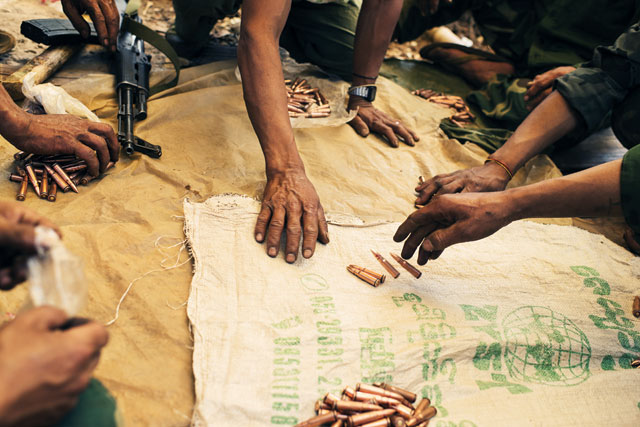
This rugged area is well known as a hotspot for the cultivation of opium poppies, the plant from which morphine and heroin are synthesised. It is a practice that has been profitable for some producers, but at a high social cost.
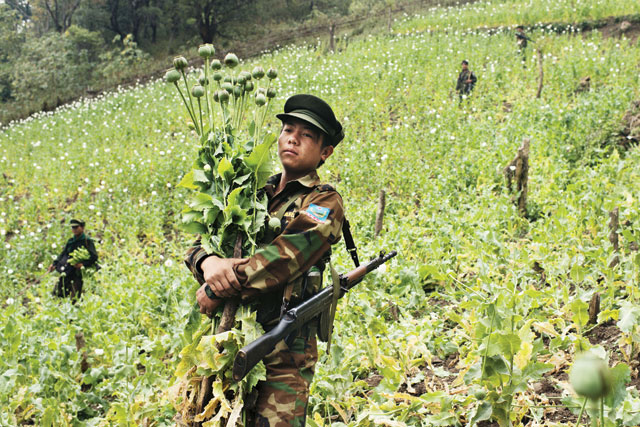
According to the United Nations Office on Drugs and Crime (UNODC), the cultivation of opium in Myanmar increased by 26% last year, marking the highest rise since the UNODC and the Myanmar government began their assessments in 2002.
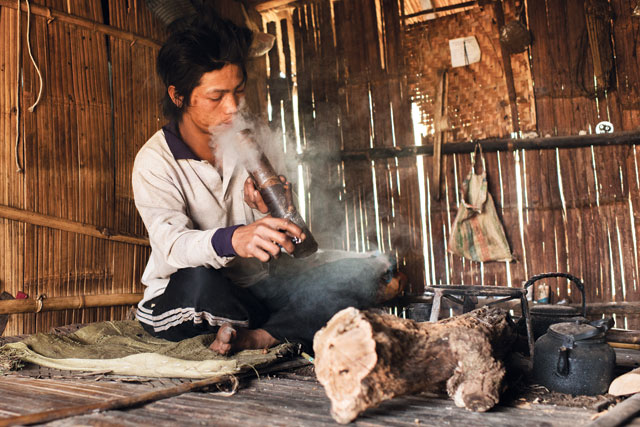
Myanmar is the second-largest opium-producing country in the world after Afghanistan, and Shan State remains the centre of Myanmar’s opium activities, accounting for 92% of the country’s total cultivation.
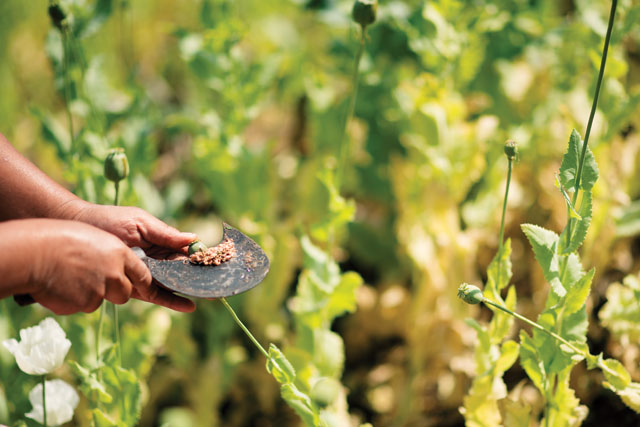
The north of the state is the home of the Palaung ethnic minority, many of whom have cultivated and harvested the “sleepy plant” for years. But the production of opium and heroin, while lucrative, has been quietly devastating the Palaung population. In some villages, 80% of the men are addicts.
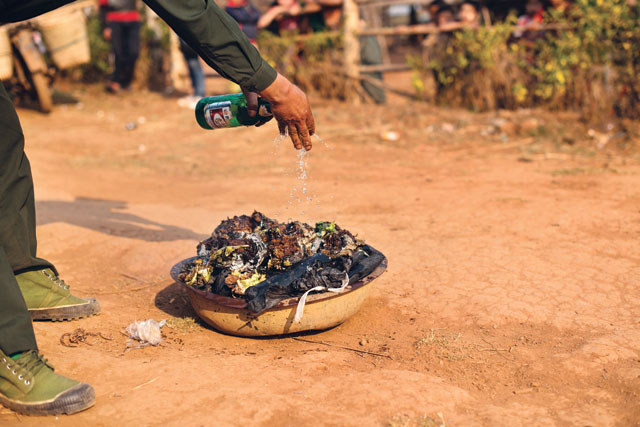
To fight the damage caused by opium to their people, the armed organisation of the Palaung minority, the T’ang National Liberation Army (TNLA), declared war on the opium poppy in 2012. The TNLA introduced prohibition laws in the Palaung community areas under their control and today, cultivating, costuming and selling drugs is strictly prohibited.
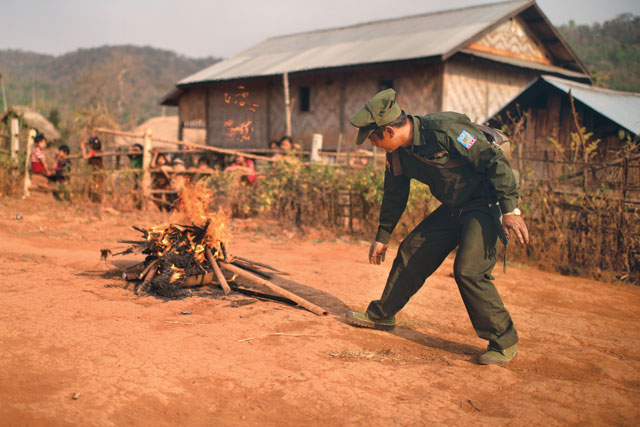
The TNLA claims to have 1,500 soldiers which, this year, were mainly put to use destroying poppy fields during the harvest season. The commanders of this ragtag army have accused the Myanmar-Chinese minority of controlling the poppy fields and working in collusion with local militias and the Myanmar army.
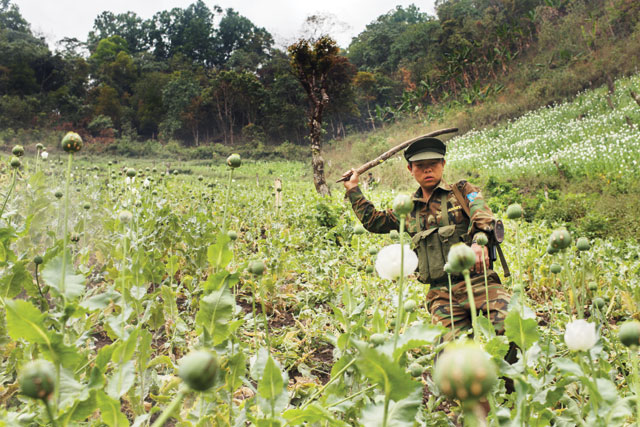
a Chinese-Myanmar farmer scrapes the milky fluid – the substance used to make opium – out of an unripe poppy pod. Photo: Vincenzo Floramo
The goal of the TNLA is to replace the poppy fields with other crops such as corn and tea, but the challenge is daunting and the process must be carried out gradually, as the area’s economy is dominated by poppy cultivation – a major source of income for the state’s people.
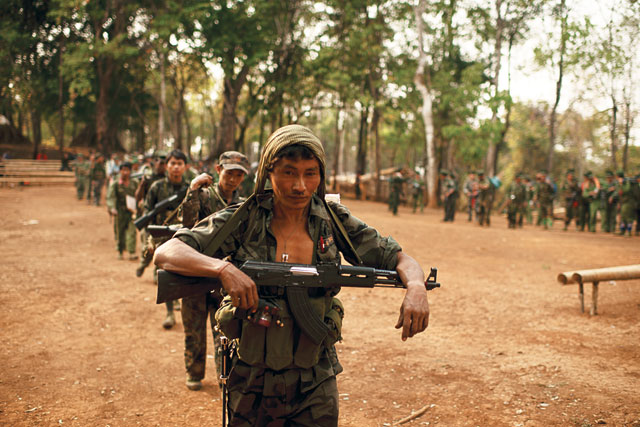
***

Keep reading:
“The damage done” – In Kachin State two battles are raging. While a bloody war with government troops continues, widespread drug addiction is proving just as destructive

